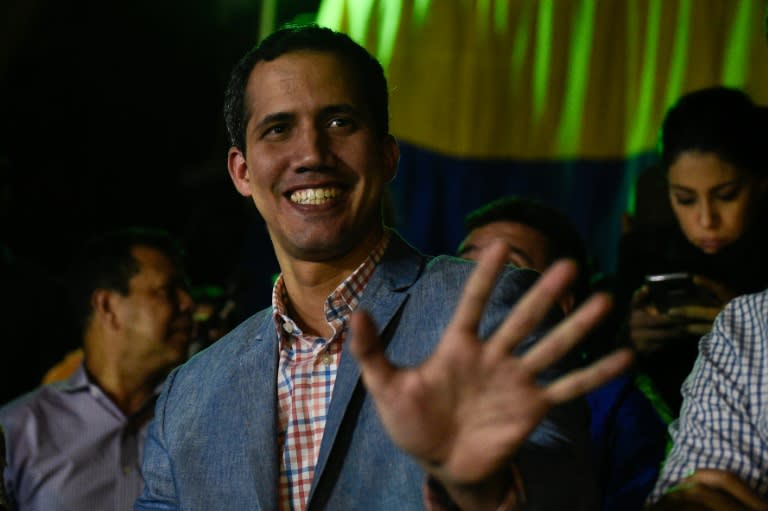Democratic transition in Venezuela seems possible, analysts say
After an election victory slammed as fraudulent by the opposition and international community, Venezuela's President Nicolas Maduro has begun a new term that will see him in office until 2025, his grip on power seemingly firmer than ever. So why are analysts talking up a hope for political change? Step in Juan Guaido, a 35-year-old industrial engineer who took charge of the opposition-dominated National Assembly on January 5, breathing new life into the body that had been rendered virtually impotent by Maduro's constitutional maneuvers. "It's almost like a rebirth. The opposition has emerged more unified than ever before," says Geoff Ramsey, vice president for Venezuela at WOLA, a research center on Latin America based in Washington. "For the first time in many months... Maduro is on the defensive," wrote Andres Oppenheimer, a noted journalist on Latin American affairs. Weeks into his new job, Guaido has managed to get the assembly's opposition majority to officially declare Maduro a usurper and denounce his re-election as a fraud, while promising an "amnesty" for all military and government officials that disavow the president. That achievement eluded his predecessors, who have been exiled, imprisoned or disqualified. - Pathways to power - Guaido upped the ante in a Washington Post column Tuesday, invoking articles of Venezuela's constitution that call on its people to reject regimes that violate democratic values, adding: "I am fully able and willing to assume the office of the presidency on an interim basis to call for free and fair elections." Michael Shifter, director of the Inter-American Dialogue think tank, agreed Guaido wresting power from Maduro would be in accordance with the law. "What is happening in Venezuela is not a coup d'etat," he said. "The National Assembly and its current leader Guaido are totally legitimate, and have the law and Constitution on their side." But, he added, the limits of the opposition's new-found strength are soon to be tested. Facing a regime-loyalist-dominated Supreme Court that annuls all its decisions, the opposition has three main pathways, argues veteran diplomat Michael Matera, director of the US-based Center for Strategic and International Studies. "The support of the military, the Venezuelan people and the international community will be essential to allow Guaido to assume (office) officially as president and to step into a role that now Maduro is trying illegitimately to hold to," he said. To that end, the National Assembly this week boldly extended a hand to the military: it promised to grant amnesty to all those who support a return to constitutional order. Guaido will also require the support of moderate followers of Maduro's predecessor Hugo Chavez to break for him, added Ramsey. - International Pressure - International pressure on Caracas has been growing since Maduro's reelection last May, but it surged with the arrival in power of the far right in Brazil: new President Jair Bolsonaro agrees with his US counterpart Donald Trump that Maduro is a "dictator." Bolsonaro, whom Maduro called a modern-day Hitler, Thursday met at Planalto Palace with Miguel Angel Martin, president of the Supreme Court of Justice of Venezuela in exile, appointed by the opposition majority Assembly. A top adviser of Organization of American States chief Luis Almagro also was present. Meanwhile, Brazilian Foreign Minister Ernesto Araujo met with Venezuelan opposition members and representatives of the United States and the Lima Group, a bloc of countries critical of Maduro. After the meeting, the Foreign Ministry issued a statement on Brazil's willingness to support a Guaido "interim presidency." Though Maduro has a few allies in Latin America and around the world, most of the international community would welcome a democratic transition in Venezuela, according to Shifter. "This process needs to be managed skillfully and be very clear-eyed about the obstacles that stand in the way," he said.



